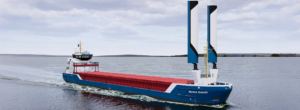The European Commission proposed yesterday the Net-Zero Industry Act to scale up manufacturing of clean technologies in the EU, a significant step in the Europe´s efforts to enhance security and to support the energy transition of European industry.
The Net-Zero Industry Act will strengthen the resilience and competitiveness of net-zero technologies manufacturing in the EU, attract investments, and will create “green jobs”, in accordance with the announcement of the President of the European Commission, Ursula von der Leyen.
European shipowners welcomed the EU’s proposal of the Net-Zero Industry Act, but emphasised the fact that “shipping is one of the most difficult to decarbonise sectors, and therefore the upscaling of affordable low- and zero-carbon fuels and technologies for the sector is key.”
“The industry is still missing a clear plan for the development of a European supply chain for clean marine fuels and technologies,” as they said.
The European Community Shipowners´ Association suggests that “renewable fuels of non-biological origin (RFNBOs) should be included within the Act’s definition of ‘strategic net-zero technologies’, so that dedicated production capacity can be swiftly developed.”
In addition, the shipowners association sees positively the inclusion of offshore renewable technologies and carbon capture and storage in the list of strategic net-zero technologies.
“European shipowners believe that the Net-Zero Industry Act can be instrumental in supporting the competitiveness of European industry while accelerating the energy transition. The strategic role of shipping for Europe’s energy security, food security and security of supply of goods must be properly recognised. In this context, we welcome the support for the faster uptake of offshore technologies, for which shipping already plays a critical role. But the industry is still missing a clear plan for the development of a European supply chain for clean marine fuels and technologies” said ECSA’s Secretary General Sotiris Raptis.
The proposed regulation now needs to be discussed and agreed by the European Parliament and the Council of the European Union before its adoption and entry into force.



